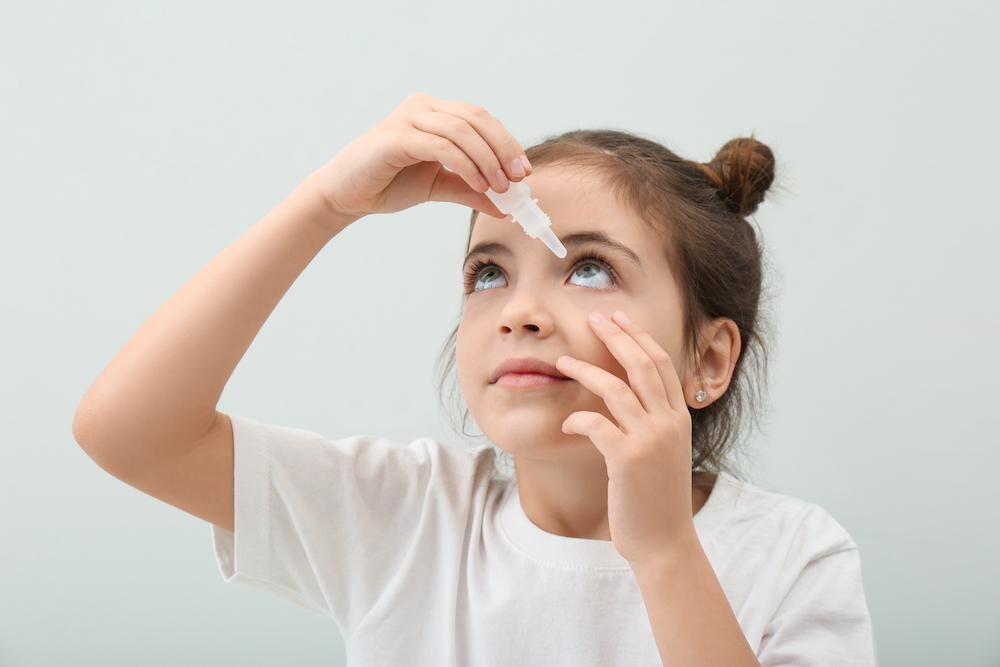
Atropine eye drops have been used for decades by optometrists and ophthalmologists to treat various eye conditions. Traditionally, these drops were prescribed for the treatment of amblyopia (lazy eye) and to temporarily paralyze the focusing muscles of the eye during eye exams. However, recent research has shown that atropine eye drops can also be used to control the progression of myopia, a common eye condition affecting millions of people worldwide.
Myopia, also known as nearsightedness, is a condition in which the eye cannot focus on distant objects, causing them to appear blurry. This condition results from the elongation of the eyeball or the cornea being too curved, causing light entering the eye to focus in front of the retina rather than directly on it. Myopia has become increasingly common in recent years. As a result, finding effective treatment options for myopia control is essential.
Understanding Myopia and its Effects
Myopia is a common vision problem that affects a large portion of the global population. This vision condition results in blurry distance vision, while close-up vision remains clear. The effects of myopia can range from mild to severe, and untreated myopia can lead to a variety of eye complications, including increased risk for glaucoma, cataracts, and retinal detachment.
It is crucial to address myopia, as it can significantly impact an individual's quality of life. People with myopia often rely on glasses or contact lenses to see clearly, and in more severe cases, corrective surgery may be necessary. The most common treatment options for myopia are corrective lenses, orthokeratology (reshaping the cornea using specialized contact lenses), and refractive surgery (such as LASIK or PRK). However, these treatments only correct the symptoms of myopia and do not address the underlying cause or progression of the condition. This is where atropine eye drops come into play as a potential treatment option for myopia control.
How Atropine Eye Drops Work for Myopia Control
Atropine is a naturally occurring substance found in certain plants, such as the deadly nightshade. In its original form, atropine is a powerful toxin that can cause severe side effects. However, when used in small concentrations as eye drops, atropine has been found to be effective in controlling the progression of myopia.
The exact mechanism of how atropine eye drops work for myopia control is still not fully understood. It is believed that atropine works by blocking the receptors in the eye's ciliary muscle, which controls the shape of the lens. By doing so, atropine may help to relax the focusing mechanism of the eye, reducing the stimulus for myopia progression.
In addition to its effects on the ciliary muscle, atropine eye drops may also have a direct effect on the sclera, the white outer layer of the eye. Recent studies suggest that atropine may help to strengthen the sclera, preventing it from stretching and elongating, which contributes to the progression of myopia.
The Role of Atropine Concentration in Myopia Treatment
The effectiveness of atropine eye drops for myopia control is largely dependent on the concentration of the medication. Higher concentrations of atropine, such as 1%, have been shown to be more effective in slowing down the progression of myopia. However, higher concentrations also come with a higher risk of side effects, such as light sensitivity, blurred vision, and difficulty focusing on near objects. Additionally, atropine may cause dryness in the eyes, leading to discomfort.
Comparing 1% Atropine and Lower Dose Atropine
While 1% atropine has been shown to be effective in slowing down myopia progression, its associated side effects can be a significant drawback. In comparison, lower dose atropine offers a more balanced approach, providing significant benefits in myopia control while minimizing the risk of side effects.
Studies have shown that both 1% atropine and lower dose atropine can effectively slow down the progression of myopia. However, lower dose atropine, such as 0.01% or 0.05%, has been found to have a more favorable safety profile, with fewer side effects and a lower risk of rebound myopia (a rapid increase in myopia after discontinuing treatment).
Given the potential benefits and minimal side effects associated with lower dose atropine, it is becoming an increasingly popular option for myopia control in children and adolescents. However, it is essential to consult with an eye care professional to determine the most appropriate treatment option for your specific case.
Conclusion
Atropine eye drops have emerged as a promising option for myopia control, particularly in the form of low dose atropine. With its proven effectiveness in slowing down myopia progression and minimal side effects, low dose atropine may be an attractive treatment option for many individuals, especially children and adolescents.
However, it is essential to remember that myopia control is a complex and multifaceted issue, and there is no one-size-fits-all solution. The decision to use atropine eye drops for myopia control should be made in consultation with an eye care professional, who can evaluate your specific case and recommend the most appropriate treatment plan.
In conclusion, atropine eye drops may be a valuable tool in the fight against myopia, offering a non-invasive and effective treatment option with minimal side effects. By staying informed and working closely with your eye care professional, you can determine if atropine eye drops are the right solution for your myopia and take the necessary steps to protect your vision for the future.
For more information on atropine eye drops and how to control myopia, visit Factoria Eye Clinic at our office in Bellevue, Washington. Call (425) 641-2020 to discuss any questions with our team of experts or to schedule an appointment today.






